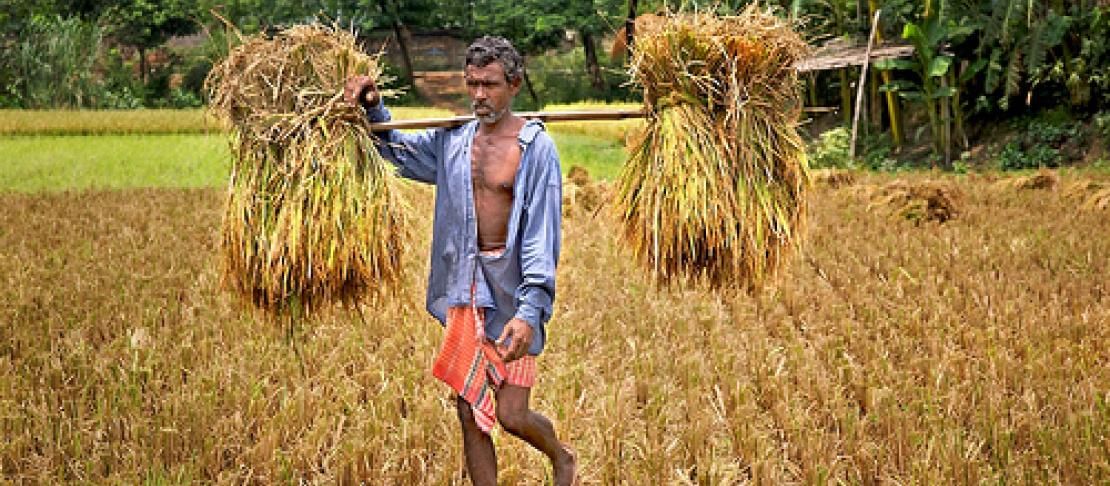Unexpected progress for agriculture at Bonn climate talks

by Bruce Campbell, Anette Engelund Friis and James Kinyangi
Agriculture took an unexpected, but significant, step forward during the latest round of UN climate talks, as countries got on the same page to organize a UNFCCC-convened workshop on agriculture. This is only the second agriculture workshop since 2009.
With the recurrent deadlock on linking adaptation to mitigation hanging over the agriculture group, the two weeks of intense negotiations at the Subsidiary Body for Scientific and Technological Advice (SBSTA) session heard views from low-income countries that are concerned about adaptation not being at the centre of agriculture efforts, while other countries want mitigation included in any decision.
The negotiations took a new direction when Australia suggested that, if there was no agreement to annex a text, parties could consider a workshop at the upcoming COP19 climate conference in Warsaw, Poland.
The workshop would cover areas of ‘convergence for adaptation and co-benefits’. Egypt, speaking for the G-77/China, also proposed an in-session workshop in Warsaw and submissions on “adaptation and additional co-benefits,” which many parties supported.
Countries and observer organizations are now urged to send in submissions by 2 September of this year, on the current state of scientific knowledge on how to enhance adaptation of agriculture to climate change impacts while promoting rural development, sustainable development and productivity of agricultural systems and food security. This should cover all countries but in particular be relevant for developing ones. The wording of this call keeps adaptation at the centre of any advances.
As a step in this process, the in-session workshop in Poland will prepare a report on the workshop for consideration at next year’s SBSTA session in Bonn. The hope is to find solutions that include both adaptation and increased food production, but done so in a sustainable way.
Already agriculture is accountable for about 11 percent of GHG emissions and 56 percent of non-CO2 emissions such as methane primarily from rice production. In addition, agriculture is the leading cause of some 75 percent of global deforestation. This means that any increase in food production cannot be realized without subsequent rises in greenhouse gas emissions, which makes the above outcome very positive.
The fact that mitigation now has been defined as leading to sustainable development marks great progress. Aligning the concepts of agriculture and sustainable development, also goes very much in line with the development of Sustainable Development Goals, as discussed during last year’s UN Conference on Sustainable Development; Rio +20.
Ensuring sustainable food goals while recognizing climate change could be achieved in parallel to the UNFCCC climate change agenda, and potentially we could find synergies between the two processes.
Read more: Small wins for small farmers at Rio+20
To achieve a sustainable world with food and nutrition for all, countries need to implement adaptation measures without depleting natural resources, and in a way that conserves biodiversity. At the same time, we cannot wait much longer. The Gambia, speaking on behalf of Least Developed Countries (LDCs), said that it is not fair for farmers if meaningful progress is not made here to enhance adaptation in agriculture and increase the capacity to cope with climate change and variability
Many countries highlighted the importance of keeping farmers at the centre of the discussions. As India put it, it is necessary to be sensitive when we handle agriculture, as we are dealing with humans, not buildings, cars, or transportation. Therefore, ensuring farmers livelihoods and securing their incomes for the future, is pivotal. Farmers will not be interested in making any changes on their farms, if they risk their livelihoods while doing it. Well-functioning local institutions in tune with farmers’ needs will be crucial for this change, towards more resilient farms.
The SBSTA text is important, as this will put us on track towards getting more knowledge and science about agriculture and climate change and the specific challenges for this area. We hope this will pave the way for additional strategies that will assist farmers around the world develop a sustainable, food-secure future.
Get all the documents from the UNFCCC Climate Change Conference here.
Read additional stories from the conference on our blog.
Bruce Campbell is the Director of CCAFS, James Kinyangi is Regional Program Leader for East Africa and part of Kenya's UNFCCC Delegation. Anette Engelund Friis manages the Climate Change Policy profile for the Danish Agriculture & Food Council and is responsible for climate change issues at the World Farmers' Organization.